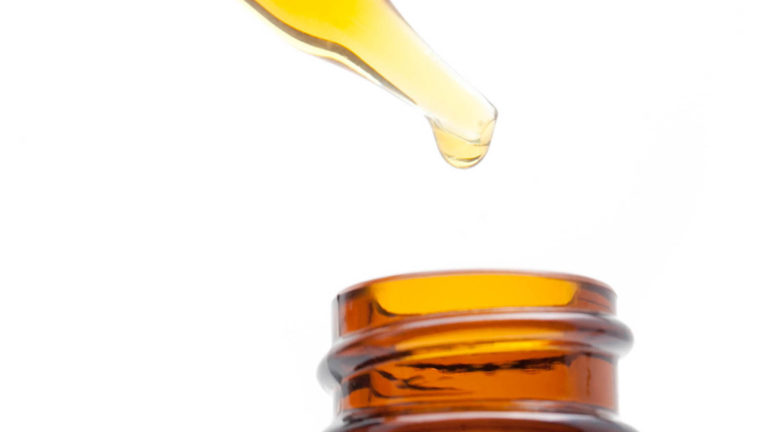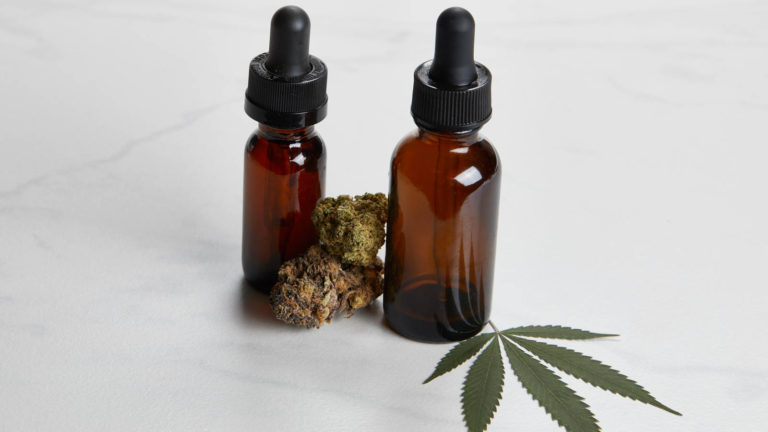Yes. Cannabidiol (CBD) products derived from hemp are legal in Ohio. The state is working to set up rules around the cultivation and sale of hemp and hemp-derived CBD products. Like many states, Ohio passed its own legislation following approval of the 2018 Farm Bill, which legalized hemp nationwide.
Ohio is developing licensing procedures for hemp growers and processors. Licenses are not required to sell or purchase hemp or CBD products. Consumers should soon find CBD-infused items available in more places, though the U.S. Food and Drug Administration (FDA), placed in charge of hemp and CBD products under the 2018 Farm Bill, is still developing rules and cautions buyers to choose carefully.
What is CBD?
CBD is a non-intoxicating cannabinoid found in the cannabis plant. It's the second-most-abundant cannabinoid in cannabis behind THC, which has intoxicating effects. Many people use CBD for its purported ability to reduce pain, inflammation, and anxiety, as well as to reduce or suppress seizures. It can be derived from either marijuana or hemp plants. In many countries, hemp is legal because it contains negligible levels of THC.
 Photo by: Gina Coleman/Weedmaps
Photo by: Gina Coleman/WeedmapsImage lightbox

Why is CBD sometimes illegal?
The 1970 Federal Controlled Substances Act categorized all types of cannabis, including hemp, as Schedule I, defined as a substance with a high potential for abuse, no accepted medical use, and a likelihood for addiction. The act prevented further research that may have shed light on beneficial uses for cannabis.
Things changed with the passage of the 2014 Farm Bill, which recognized the difference between hemp and marijuana. The measure distinguished hemp as having less than 0.3% THC, while marijuana plants contained more than 0.3%.
 Photo by: Gina Coleman/Weedmaps
Photo by: Gina Coleman/WeedmapsImage lightbox

The 2018 Farm Bill removed hemp from the list of controlled substances, though marijuana with more than 0.3% THC remains illegal at the federal level and in states without medical or recreational legalization. CBD derived from marijuana plants is, therefore, still illegal while hemp-derived CBD is legal.
The Farm Bill also gave the (FDA) authority to regulate CBD product labeling, therapeutic claims, and its use as a food additive. Despite the passage of the Farm Bill, the FDA has taken the stance that even hemp-derived CBD may not be added to food and beverages, nor marketed as a dietary supplement.
While the FDA has begun a process of re-evaluating that stance, it has yet to revise its rules or specifically regulate CBD products. The FDA has been strict when it comes to health claims that could be construed as medical advice about CBD. In July 2019, the FDA sent a letter to retailer Curaleaf outlining a bevy of regulations they were violating by making such claims. In April 2019, the FDA also warned three CBD makers about making unproven health claims.
The bill also allows some states to make their own rules for CBD cultivation and sale. States may also try to regulate CBD in food, beverages, dietary supplements, and other products instead of waiting for final FDA rules.
Ohio CBD laws
In July 2019, Ohio passed SB 57, decriminalizing hemp and setting up a regulatory framework to license hemp cultivation. Ohio was one of many states that has regulated industrial hemp production as a crop following the passage of the 2018 Farm Bill.
In accordance with federal law, Ohio's bill set the standard for hemp versus marijuana at a 0.3% THC cutoff. In Ohio, CBD is legal for use in food, dietary supplements, cosmetics, and personal care products, among other products. According to Ohio law, hemp growers and processors must be licensed and CBD products must be tested, though both of those processes are still being worked out by state lawmakers.
SB 57 requires licenses for growing or processing hemp are valid for three years and are not available to anyone convicted of drug-related charges in the past 10 years. No license is required to sell or purchase CBD in Ohio.
Ohio CBD possession limits
There are no possession limits for hemp-derived CBD at this time. CBD products with more than 0.3% THC remains illegal to sell, possess, and consume unless registered under Ohio's medical marijuana program.
 Photo by: Gina Coleman/Weedmaps
Photo by: Gina Coleman/WeedmapsImage lightbox

Where to buy CBD in Ohio
While major drugstore chains currently sell hemp-derived CBD products in some states, Ohio is not yet one of them. Smaller, local pharmacies and health food stores may offer it. More locations will likely begin to carry CBD products as the state works out its licensing process.
Shopping online is an option since the U.S. Postal Service has confirmed that legal CBD products may be shipped by mail. CBD products can usually be found online at the websites of specific brands.
You can find reputable CBD oil brands on Weedmaps, along with more information on how to look for high-quality CBD products.
How to read CBD labels and packaging
As of September 2019, the FDA does not allow CBD-infused food, drinks, or dietary supplements to be sold, and hasn't reached a conclusion on regulating hemp-derived CBD products. While the FDA slowly and cautiously approaches making new regulations for CBD products, the gap between regulated products and anything goes grows wider, leaving consumers at risk of buying poor-quality products. When buying CBD products look for these on the label:
- Amount of active CBD per serving
- Supplement Fact Panel, including other ingredients
- Net weight
- Manufacturer or distributor name
- Suggested use
- Full spectrum, broad spectrum, or isolate
- Batch or date code
One of the most important things to pay attention to is if a CBD product is full spectrum, broad spectrum, or isolate.
Full-spectrum means that the CBD has been extracted from a hemp plant along with all other chemicals in the plant, including terpenes and trace amounts of THC. Consuming full-spectrum CBD may yield better results due to a phenomenon known as the entourage effect, which happens when cannabis compounds work together to bolster the benefits of the plant.
Broad-spectrum means that the product contains CBD and terpenes, but has undergone additional processes to strip out THC.
Finally, CBD isolate is a product that has gone through more intensive processing to remove everything except for pure CBD. Consuming isolate may produce different effects than full-spectrum or broad-spectrum CBD, as these products do not produce the entourage effect. However, CBD isolate may be preferable for someone looking to avoid even trace amounts of THC.

